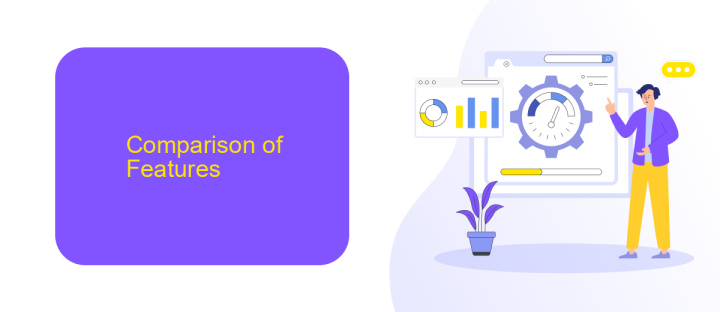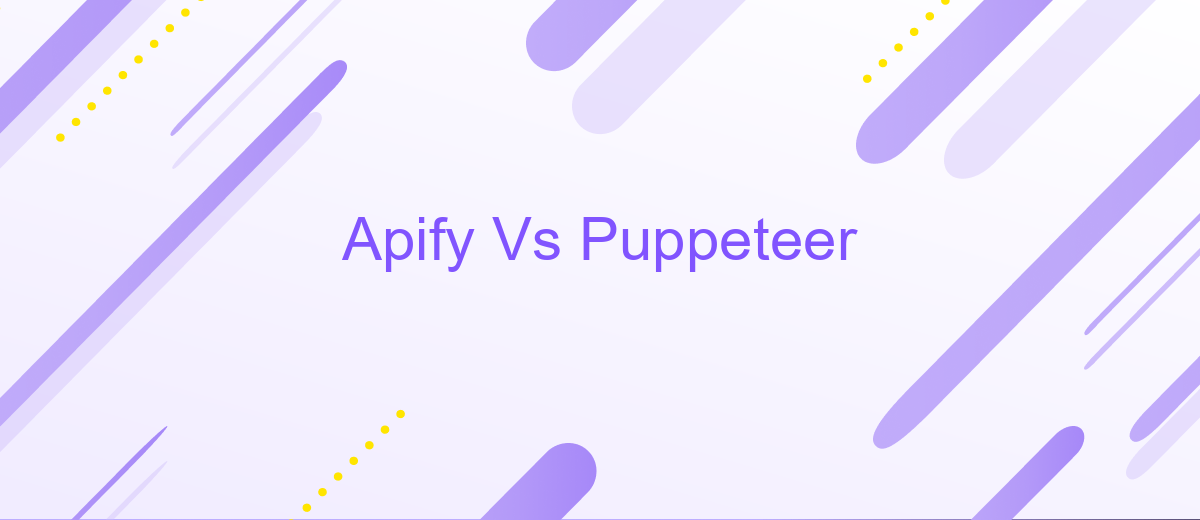Apify Vs Puppeteer
When it comes to web scraping and automation, choosing the right tool is crucial for efficiency and success. Apify and Puppeteer are two popular options, each offering unique features and capabilities. In this article, we will compare Apify and Puppeteer, examining their strengths and weaknesses to help you determine which tool best suits your needs for web scraping and browser automation tasks.
Introduction
In the ever-evolving landscape of web scraping and automation, two prominent tools have emerged as leaders: Apify and Puppeteer. Both offer robust solutions for extracting data and automating web interactions, but they cater to different needs and use cases. Understanding the strengths and weaknesses of each can help you make an informed decision on which tool to use for your specific project.
- Apify: A cloud-based platform offering a wide range of ready-made actors for web scraping and automation.
- Puppeteer: A Node.js library that provides a high-level API to control headless Chrome or Chromium over the DevTools Protocol.
- ApiX-Drive: A service that facilitates seamless integration between various automation tools, potentially enhancing the capabilities of both Apify and Puppeteer.
Choosing between Apify and Puppeteer largely depends on your project's requirements, technical expertise, and the level of customization needed. Apify is ideal for those who prefer a user-friendly, out-of-the-box solution, while Puppeteer is better suited for developers looking for fine-grained control over their web scraping and automation tasks. Additionally, integrating ApiX-Drive can simplify the process, allowing for more efficient workflows and better data management.
Comparison of Features

When comparing Apify and Puppeteer, one of the key differences lies in their feature sets. Apify is a comprehensive web scraping and automation platform that offers a wide range of tools and integrations, including ready-made actors, data storage, and proxy management. It is designed for both developers and non-developers, providing an easy-to-use interface and extensive documentation. On the other hand, Puppeteer is a Node.js library that provides a high-level API to control Chrome or Chromium over the DevTools Protocol. It is more focused on browser automation and is best suited for developers who need to perform complex browser interactions and scraping tasks.
Another significant distinction is the integration capabilities. Apify supports seamless integration with various third-party services, making it easier to incorporate into existing workflows. For instance, using ApiX-Drive, users can automate data transfer between Apify and other platforms without writing a single line of code. Puppeteer, while powerful, requires more manual setup and coding to achieve similar integrations. This makes Apify a more user-friendly option for those looking to quickly deploy web scraping and automation solutions, whereas Puppeteer offers greater flexibility for custom, developer-centric projects.
Pros and Cons

When comparing Apify and Puppeteer, it's essential to weigh their respective advantages and disadvantages to determine which tool best suits your web scraping and automation needs.
- Apify Pros: User-friendly interface, cloud-based execution, built-in proxy rotation, extensive integrations, and scalable infrastructure.
- Apify Cons: Higher cost for advanced features, dependency on internet connectivity, and potential learning curve for complex tasks.
- Puppeteer Pros: Free and open-source, robust control over browser automation, excellent for headless browsing, and strong community support.
- Puppeteer Cons: Requires more technical expertise, lacks built-in proxy rotation, no cloud execution, and limited scalability without additional infrastructure.
For those needing seamless integration with various applications and services, Apify's compatibility with tools like ApiX-Drive can be a significant advantage. ApiX-Drive enables easy integration and automation, further enhancing Apify's functionality for comprehensive web scraping solutions.
Use Cases

When it comes to web scraping and automation, Apify and Puppeteer each offer unique advantages suited to different use cases. Apify is a platform that simplifies the process of creating, managing, and scaling web scraping tasks, making it ideal for businesses that need a comprehensive solution. Puppeteer, on the other hand, is a Node.js library that provides a high level of control over headless Chrome or Chromium, making it perfect for developers who need fine-grained control over their scraping and automation processes.
Both tools are highly effective, but their applications can vary significantly depending on the specific needs of a project. For instance, Apify is often favored for its ease of use and powerful integrations, while Puppeteer is commonly chosen for its flexibility and control.
- Data extraction from websites for business intelligence
- Automated testing of web applications
- Monitoring website changes and updates
- Generating screenshots and PDFs of web pages
For those looking to integrate these tools with other services, ApiX-Drive offers a seamless way to connect Apify or Puppeteer with various applications, enhancing workflow automation. Whether you need to automate data collection or streamline web testing, choosing the right tool for your specific use case is crucial for achieving optimal results.
Conclusion
In conclusion, both Apify and Puppeteer offer robust solutions for web scraping and automation. Apify stands out with its user-friendly interface and extensive library of pre-built actors, making it an excellent choice for those who prioritize ease of use and scalability. On the other hand, Puppeteer provides a high level of control and customization, ideal for developers who require detailed manipulation of browser interactions.
When deciding between the two, it is essential to consider your specific needs and technical expertise. For those looking to streamline integrations and automate workflows effortlessly, leveraging services like ApiX-Drive can be highly beneficial. ApiX-Drive allows seamless integration with various platforms, enhancing the overall efficiency of your web scraping and automation tasks. Ultimately, the choice between Apify and Puppeteer depends on the complexity of your projects and your preference for either a more guided or hands-on approach.


FAQ
What is the main difference between Apify and Puppeteer?
Which one is easier to use for beginners?
Can I use Apify and Puppeteer together?
How do they handle data storage and retrieval?
Are there any integration options available for automating workflows?
Time is the most valuable resource for business today. Almost half of it is wasted on routine tasks. Your employees are constantly forced to perform monotonous tasks that are difficult to classify as important and specialized. You can leave everything as it is by hiring additional employees, or you can automate most of the business processes using the ApiX-Drive online connector to get rid of unnecessary time and money expenses once and for all. The choice is yours!

